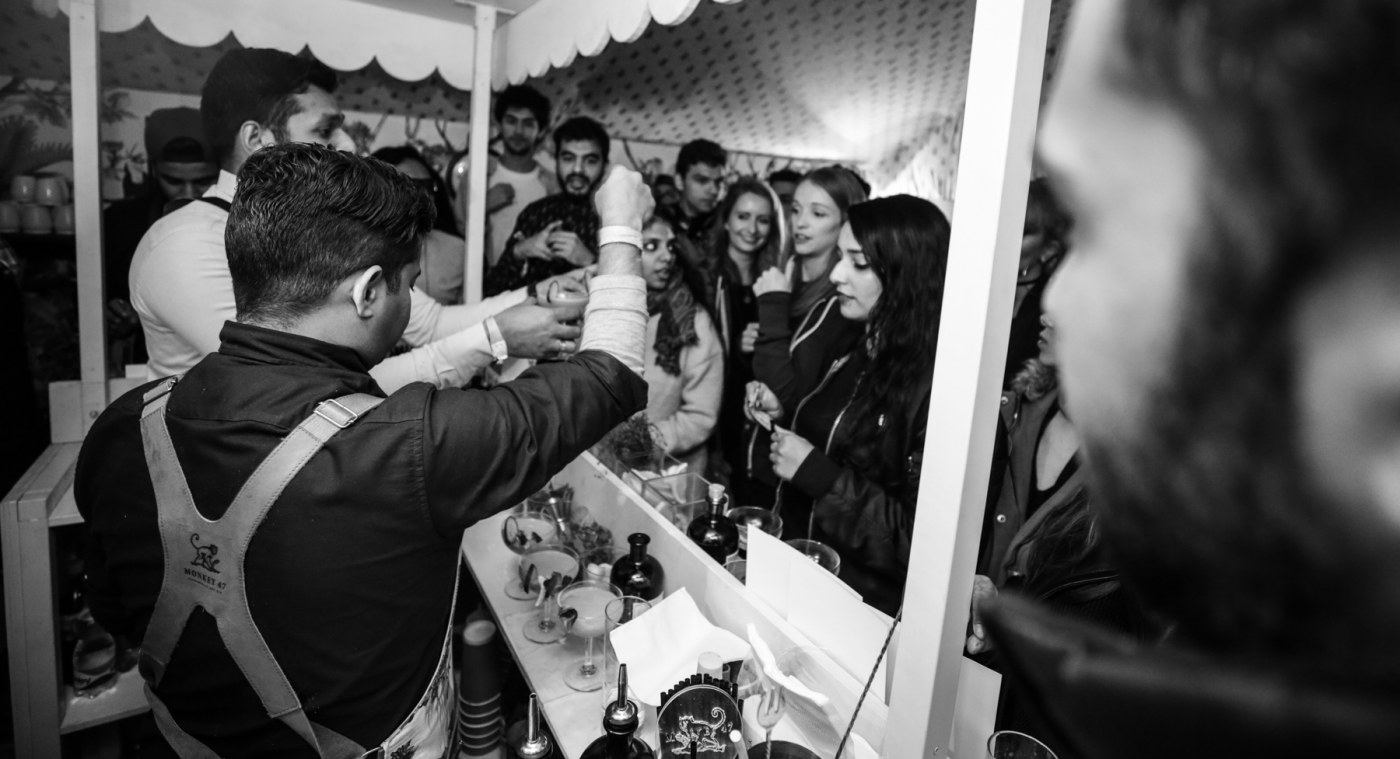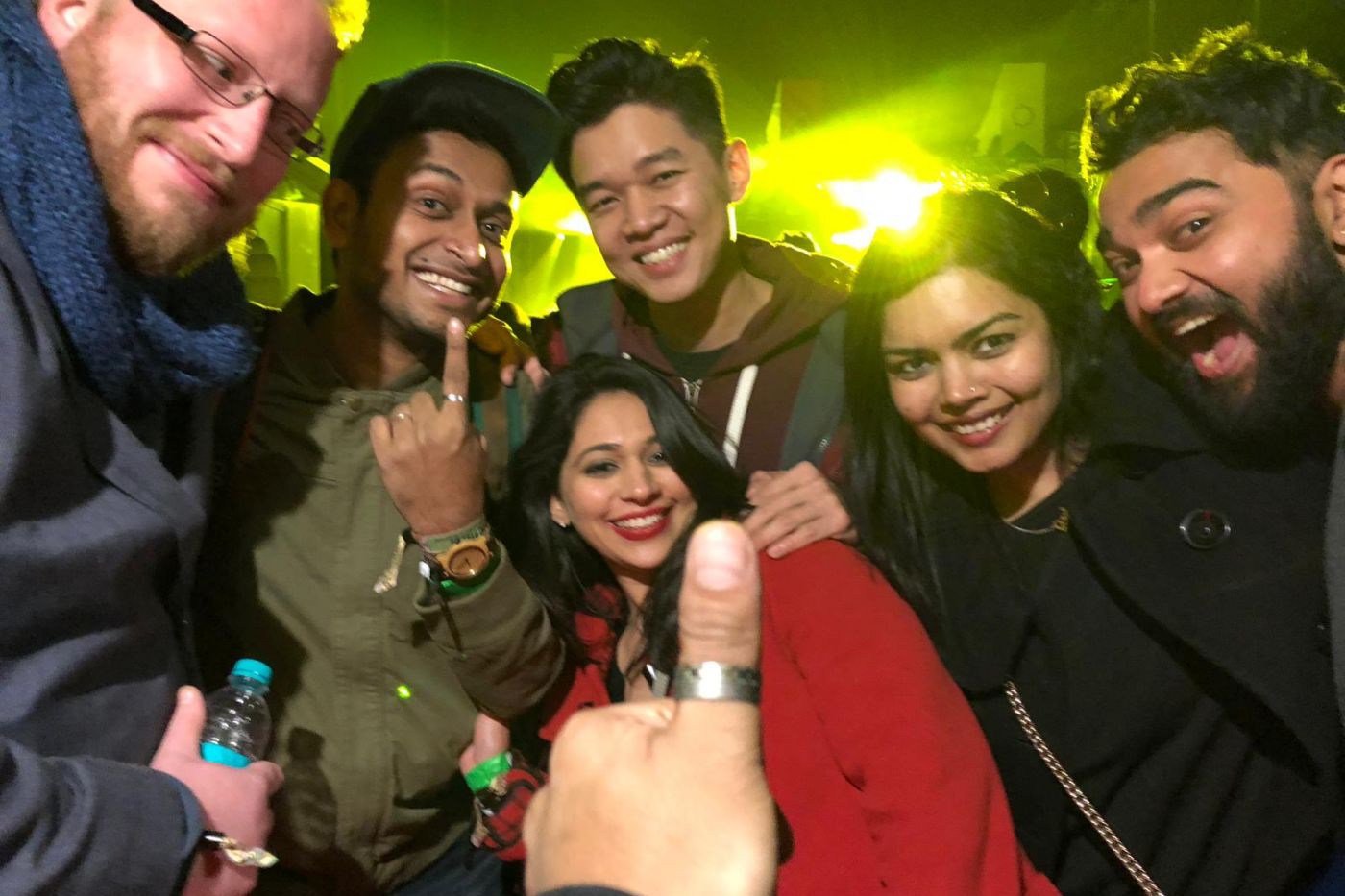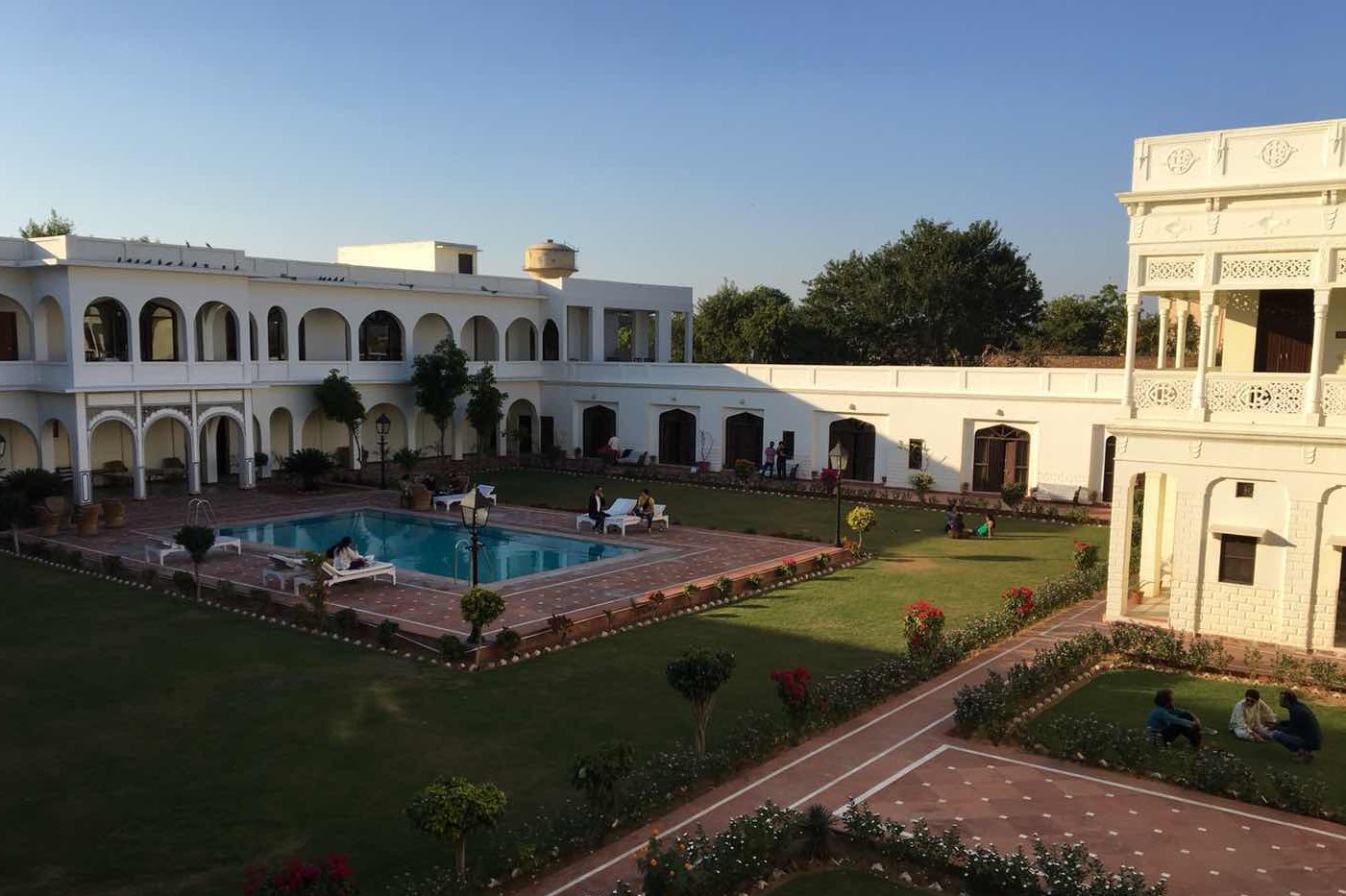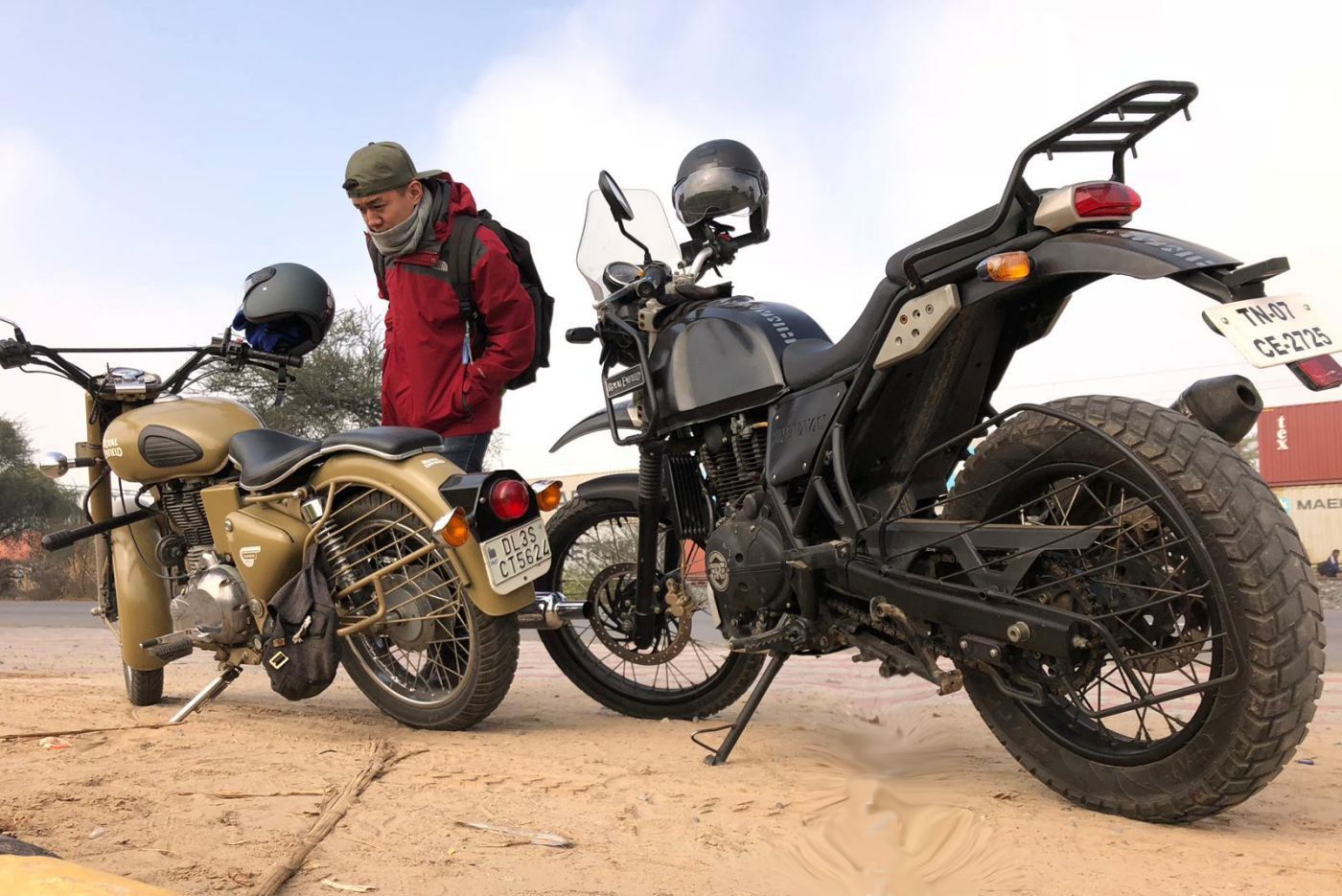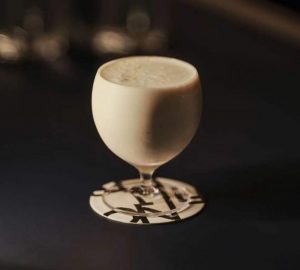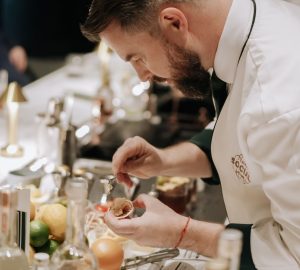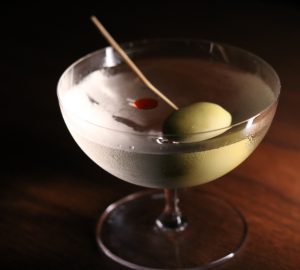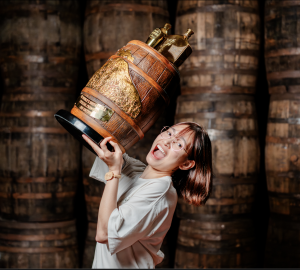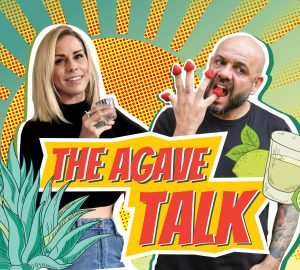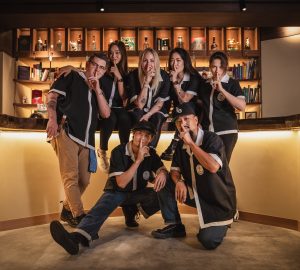Arijit Bose, former Asia Pacific brand ambassador for Monkey 47, and Julien Nicolay, the brand’s APAC general manager, had a big idea to launch the German gin in Bose’s home country (India) at the Magnetic Fields music festival, last December. The pitch: a bar set up in a tent, trinkets and monkey memorabilia everywhere, word-of-mouth spreading through the crowds of top-notch gin cocktails being served up to anyone who could find them, a free-spirited community of festival-goers slaking their thirsts before hitting the dancefloors… the brand loved the idea! That is, until Bose mentioned he also wanted to ride a motorbike eight hours to get there from Delhi. And wanted Singapore’s Jeremy Chua (from 28 Hong Kong Street and Jerry) to risk his life riding one too. The two got on the phone with Dan Bignold to explain how it went down… a long ride deserves a long read.
Arijit: I remember meeting you Jem a long time back, when I first got to Singapore, and you told me how you were going to travel the road bartending. When you meet people like that you immediately click. I joined 28 Hong Kong Street, and when he came back I really wanted to show him what India was about. Then when I joined Monkey 47, I was able to convince them that, instead of launching in India in a major city, we should launch at a music festival – and specifically Magnetic Fields, because it’s different from other festivals, the crowd is eclectic and from all over India, and they’d all be here, and hopefully all be in our tent. And I thought it would be good to get someone to help make drinks who has done the same things as I have done, and that’s Jem. I knew he liked riding bikes because when I started at 28, Michael Callahan gave me a bike and said that it was Jem’s before. So I spoke to Jem and asked him if he was willing to take that risk – to risk his life, and his stomach – and bartend with me at an event where we get someone else to pay for it. And Jem agreed.
Jeremy: Ari called me up and said there’s this really amazing trip coming to India – bartending and riding motorbikes. I was like, “Yes.” So the plan was to go to Delhi, meet him, collect two bikes, and head to this festival in the desert. Ari picked me up and we had some food, then we were hanging out at his house and he calls up from outside the window: “Come check out your bike.” I was like, “How did this happen? How did these get here?” Through his connections – I’ve no idea what he did – these guys had just dropped off the bikes. Keys in the ignition. A couple of helmets. Full tanks. I thought, “Holy shit, you really are the Prince of India.”
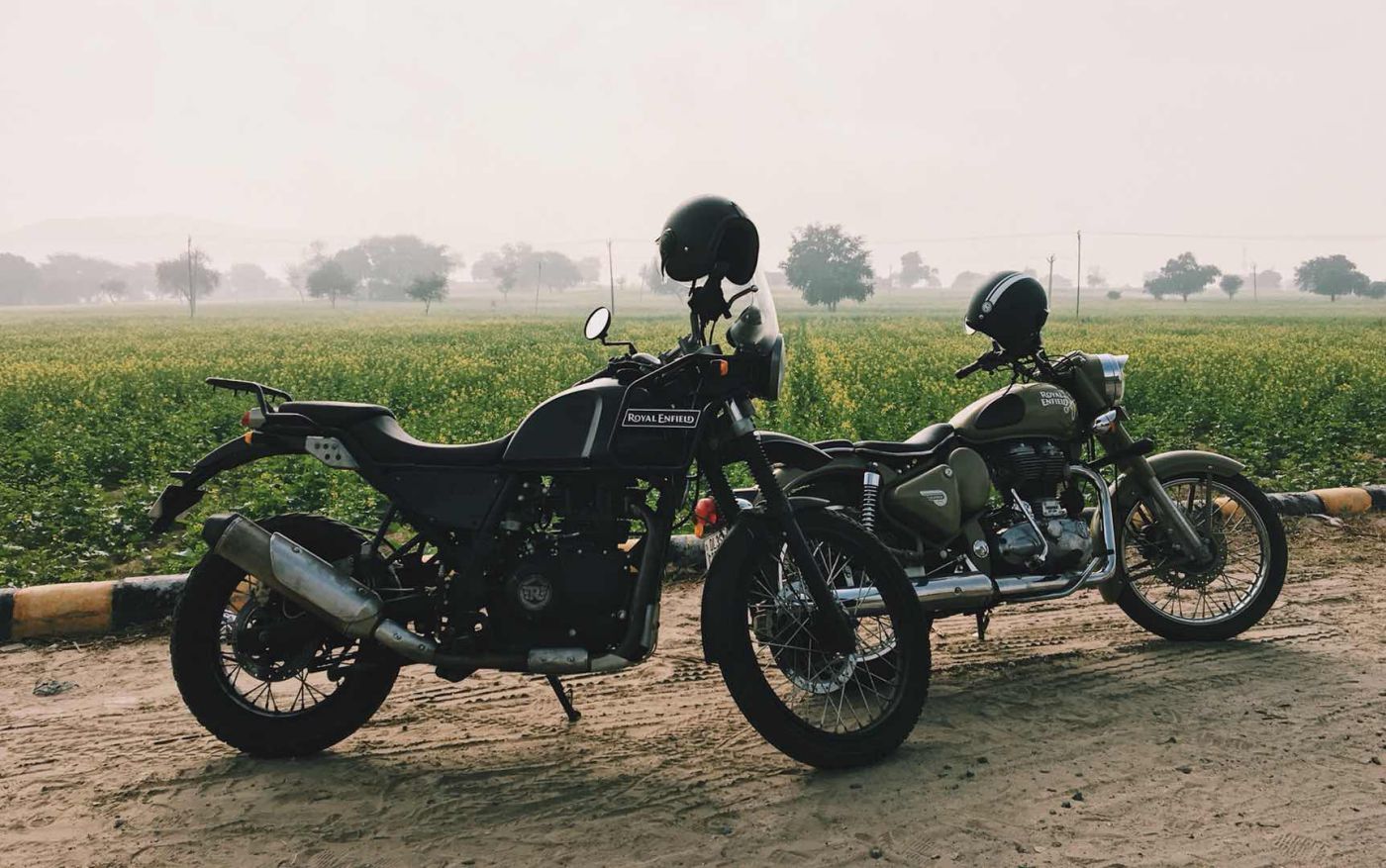
Arijit: I used to work for Royal Enfield as a food and beverage consultant and they give me bikes to do stuff whenever I need it. Luckily for me I already had a Royal Enfield – well, actually, I gave it to my brother as a present, but I use it all the time. I call it the family heirloom.
Jeremy: First thing we did was to check out the Royal Enfield store, to buy gloves and warm clothes. But I remember every time we met people and were telling them what we were about to do, everybody had their doubts.
Arijit: Some of my family were giving Jem disapproving looks. My partner was like, “Jem, be careful. Those roads are not safe.” To give you some history, there was also a lot of pushback from the brand, not because of cost, but everyone thought the bike idea was unsafe. Everyone had been asking me, “Why are you doing this?” To which I replied, “Because, we can.” But at this point, all I was thinking was, “I have got myself into this. Now all I have to do is keep Jem alive for five days.” That was the core goal of all subsequent operations.
“All that conspired to bring us to 6am, 8 celcius outside, hitting the road. And within the first three minutes I got lost”
Jeremy: When you start hearing that it’s dangerous, that Delhi streets are crazy, you’d think you’d get scared off. But though I was a bit uncertain, I was more excited. We packed up our bags, met the other guys who were going up with all the bar equipment – including Ari’s team from Barback Collective and Julien Nicolay from Monkey 47 – gave them our stuff and helped load the bus.
Arijit: My bike is a 500cc Royal Enfield Desert Storm. You might notice the seat is a bit lower, so my feet can touch the ground, and it makes a better riding position. The one for Jem was the Himalayan, which is one of the more technologically advanced Royal Enfields, designed to take on hills and alternative terrains. It’s around 400cc but has better torque – it’s lighter, so better for going up the mountain. And it tells you about fuel, what gear you’re in, kilometres travelled and all that stuff. Mine is a bit more old-school and you don’t get all that detail. A lot of it is guesswork.
Jeremy: I’ve always liked bikes, but in Singapore people always have sports bikes. But I think the Desert Storm is one of those bikes you want to have. It looks really vintage. It’s very classic.
Arijit: It used to be a British bike between the wars, but then they shifted production to Chennai in the south of India, and then eventually India bought the rights to produce them. By the 1970s they were really just for farmers, but in the 90s they went through a rebranding. If you could afford a Harley Davidson you would still buy a Royal Enfield, because it became cool and it represents us.
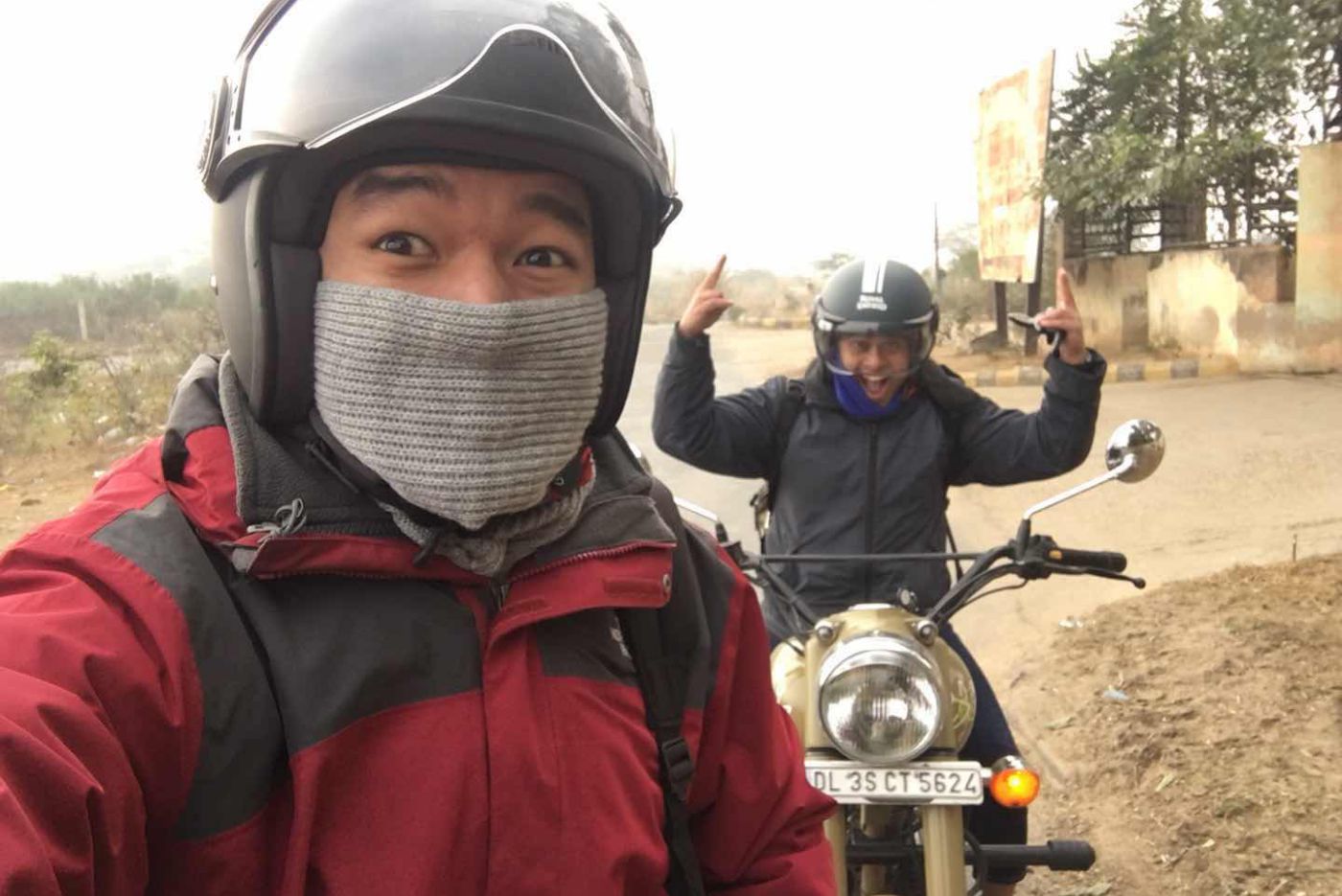
Jeremy: The ride was meant to be 700 or 800 kilometres. We left before the traffic got heavy and rode for about seven or eight hours. When I got back all my friends were asking how was the ride. Well, there were indeed many occasions when I thought I was going to die. But as I said, either you dive into the chaos or you don’t do it.
Arijit: It’s organized! It’s just super organized chaos. But yes, I would agree that it’s not about how good a rider you are. It’s about how bad everyone else is. You have to account for everyone else’s screw-ups. And actually, when we went shopping for gloves and stuff, that was a disguise so that I could get him accustomed to the road. Like an audition. Because if he survived Delhi, the road to the desert would be easy. Anyway, all that conspired to bring us to 6am, 8 celcius outside, hitting the road. And within the first three minutes I got lost. But every time Jeremy asked me I would just look at his face and lie. And then for the next five hours we didn’t get any sun; it was just clouds and cold.
Jeremy: I brought enough warm clothes for what I thought it would be like. But in that early morning, I didn’t calculate the temperature correctly. Luckily, we had a signal worked out to honk three times if we needed to stop. I was starting to get cold, so I honked three times and said, “Coffee?”
“People usually think of India as the Taj Mahal or yoga. But you see this music festival and how people are jamming, that is all very different”
Arijit: I was cursing. Every time you saw a spark of sun, it was like vampires – there as a howl and a cloud covered it. So I just got into the zone and kept on riding, and these are the times you sometimes just need someone else to be the voice of reason. Jeremy honked and was like “Bose, coffee.” I was like, “Yesss”. So we turned off and found a nice place to eat with a small coffee shop. And a toilet. And we were shivering. For the first ten minutes we could not even hold a conversation.
Jeremy: Just shaking. Tried to talk and just spasms. So we doubled up on our sweaters and took out the scarves to cover our mouths. And then later the sun came out and the ride was just beautiful. Everything you expected to see. And I’m not just talking about the landscape. Colourful buildings, lively people.
Arijit: Mustard fields, then through forests, then green, then desert. And, actually, the roads once you are on the highway were pretty smooth. Then after the four-hour mark we found a place to have a good lunch in a little village, which is the high point of any such ride. But, of course, as we were leaving I put the bike stand down for a minute and the ground was soft, and the bike fell on top of me. And it took like seven people to help lift it off.
Jeremy: You didn’t have to tell them about that.
Arijit: Luckily there were no girls watching, so it was all alright.
Jeremy: That wasn’t the most dangerous thing, though. Here’s a list of things along the way that could kill me, and it’s not just about other cars: a cow, a camel, or a donkey; kids running out across the road; or wild packs of dogs. The list goes on.
Arijit: Old ladies crossing the street.
Jeremy: Or you get the large potholes or bumps, just when you’re enjoying the view. There was one point where suddenly there was this bump, and I didn’t realise how high it was until the last moment. So I was like, “Oh shit”, went into emergency brake mode – slowly brake from the back and, if you really can’t slow down, hit the front – but my bike went into a skid and I drifted sideways and almost knocked into Ari.
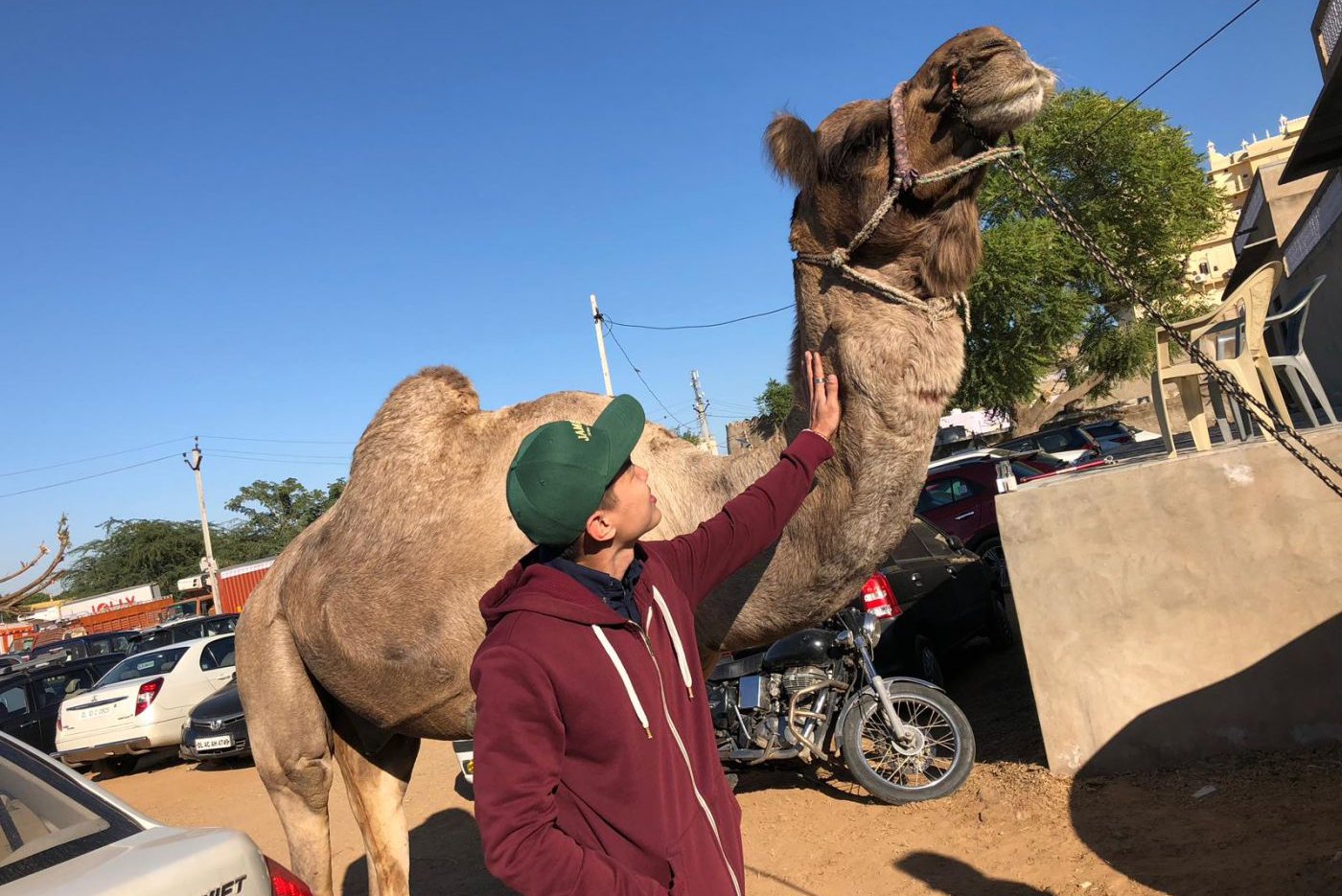
Arijit: The only time I was worried was when we were quite close to the festival and decided to take an alternate route and follow Google maps. It brought us into this village and the road just started getting smaller and smaller and smaller, closing in on us, so that from a five-foot wide road we were suddenly trying to ride along a foot-wide track. We had all these people looking at us strangely and I wasn’t sure about stopping to ask any of them for directions, in case they wanted our bikes in exchange. But then we spoke to his guy and he agreed to drive us to the exit point of that village and show us the way. I was still worried that he might drive us to his friends and Jem would get kidnapped and stay in India forever. But he was super nice and took time out his day. You don’t see that in many countries. Then the final stretch was a bit bumpy, so was better for Jem’s bike. My butt got a bit broken because the Desert Storm suspension isn’t really designed for that.
Jeremy: Yeah, that was fun for me. It was rocks and gravel and sand, so I just stood up and kept going. Then we arrived where the festival was. It’s an amazing hotel in a 400-year-old palace called the Alsisar Mahal, and the guy who owns it lets the festival use it. We parked the bikes, got off after eight hours of riding, and the first thing I heard was someone shouting “Ari-jiiiiitt.” And so it began. We dropped off our bags, gelled our hair and went straight to the Monkey 47 tent to start bartending.

Arijit: The music was in the palace, but there was a camping area where they had 100 bedouin tents each with a number. Monkey 47 had number 47. We were meant to do two shifts a day, from four to seven o’clock in the tent, then later at an underground bar in the palace. And because no one knew what was meant to be happening on the first day, we just gave out loads of shots and free drinks. And everyone thought we were the unicorns. They just loved us. There was a camera lady who was making sure everything was documented and she was in love with Jeremy, of course. The thing that’s so different than in Singapore is that in India I have so many staff. Everything was set up when we arrived. The premixes were made. All we had to do was go and make drinks.
Jeremy: I have to give a shout out to the Barback Collective. When we got there after a long ride I was thinking, “Ok, I guess let’s get everything prepped.” And Ari was like, “No man, everything’s prepped. And if you need anything just say the word.” And they were absolutely amazing at it.
Arijit: Because it was going to be so cold we had this big soup tureen in which we made a punch with forest berry tea, Monkey 47 sloe gin, and a bunch of Indian spices, and some wine – like a mulled wine, except Germans call it gluhwein. That was a runaway success. We also had this great cocktail called Slip Me A Mickey, which is a Michael Callahan invention. What’s amazing was that we were doing drinks in a tent in India that were similar to a craft cocktail bar in Singapore.
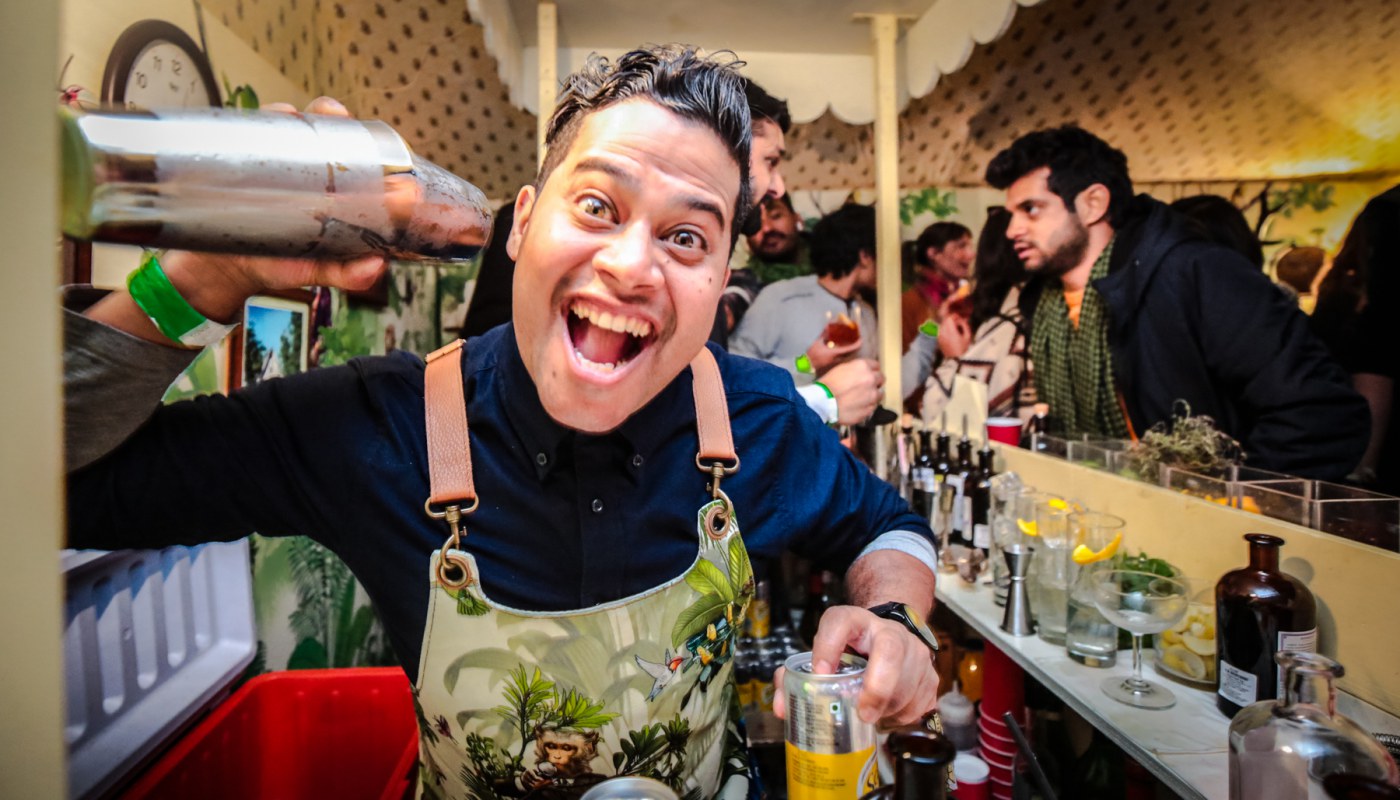
Jeremy: Over three nights we served about 3,000 drinks. Cocktails, shots, gin and tonics, mulled wine. This was the official launch for the gin.
Arijit: The music in the tent was also really feel-good. I remember there was this part when it was like six-deep at the bar and I called back and told my guy to play Wonderwall, and there were 75 people who completely went nuts singing together. And that was the moment you look back on and say, “This is why we do what we do.” Small moments of absolute joy.
Jeremy: We became this word-of-mouth thing on the first night. And the following day it just started to get crazier and crazier.
Arijit: It was not something we were announcing. The basic idea was that people would find us. And because people were people coming back to us, we made friends. I just recently went to one of the guy’s wedding. I was a front row guest – after meeting at Magnetic Fields! You know, you can put the best drinks and mixologists in a bar, but what makes a bar click is the people. We were meant to serve from 4-7pm but we were doing 4-9pm because it was too full.
Jeremy: We had to do last call over and over.
Arijit: There was a funny guy who kept talking in Hindi when we were all huddled together. I realised he didn’t think Jeremy was Singaporean; he thought he was Nepali. I told him, “No, you’ve got to speak English.” Then he would go on this whole rant about Singapore. Then he would forget and start speaking Hindi to Jeremy again. He kept losing focus. There was also a super-crazy German lady, who was a photographer, who I think managed to pick up one of the bartenders and persuade him to drop her back in Delhi.
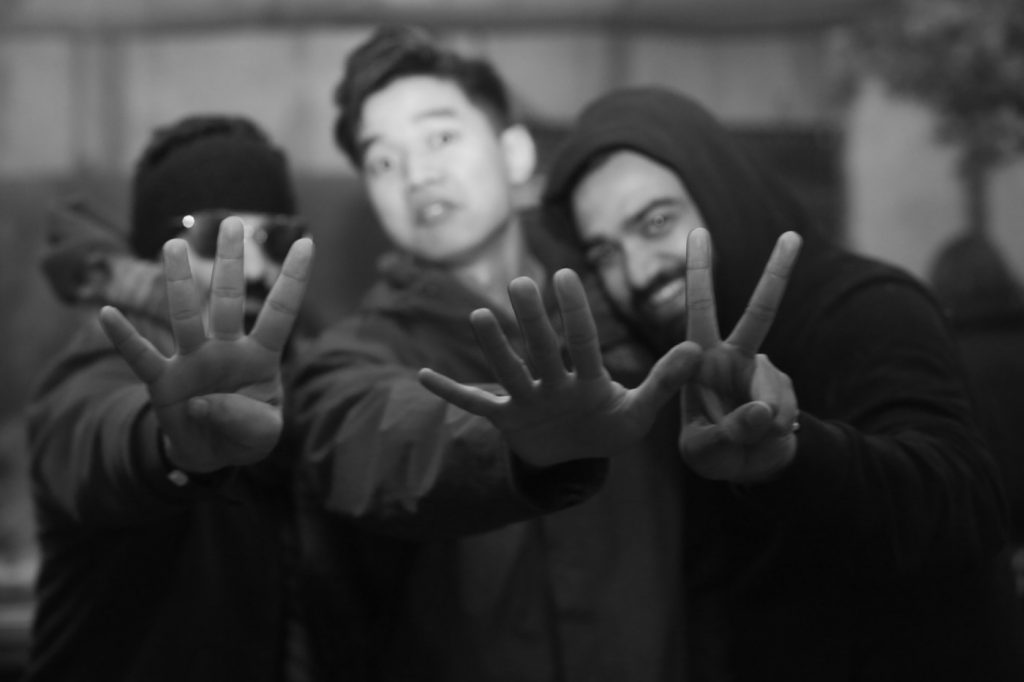
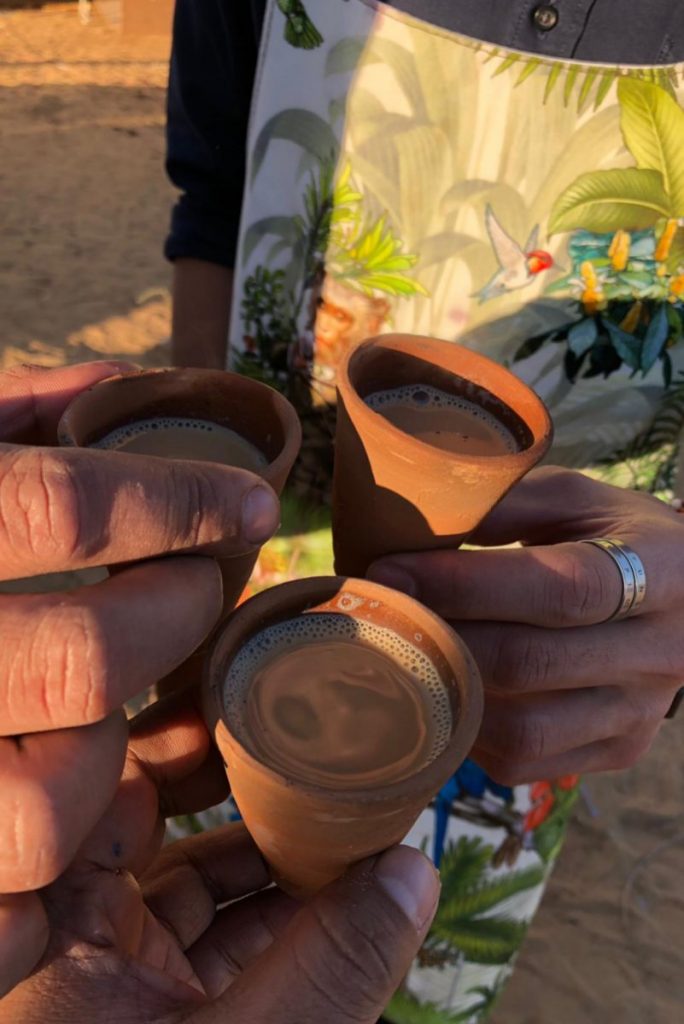
Jeremy: The food there was also amazing. Great vendors. Serving everything, but I always went for Indian food because it was phenomenal.
Arijit: This is why I love this guy. He’s not in India telling me “My stomach’s gone, can I just have bottled water.” You also tasted the local tea that’s made in Rajasthan – proper chai. They serve it in terracotta cups and no matter how cold it is you always go outside for tea. When we work we would have 4 or 5 cups a tea, each one costing about 50 cents. This is also the thing I wanted to show Jeremy. It’s not just the great partying and drinking.
Jeremy: My whole experience was really positive. Although I did have one moment of culture shock. When we were riding I saw this cow, that had just died. It was an amazing sight, but quite graphic. It had this blank stare and its tongue was hanging out and there were three wild dogs that were starting to sniff around, trying to eat it. That was definitely something where I had to do a double take: “What did I just see?”
Arijit: Being Indian I think we’re more desensitised to stuff like that. Something like this would not move me as much as it moved Jeremy.
Jeremy: Don’t get me wrong. For me, witnessing a moment like that is why you go travelling. It’s not scary; it’s interesting. It’s a new experience.
Arijit: You see people usually think of India as the Taj Mahal or yoga or massages. But when you see this music festival and how the people are jamming, that is all very different to what people expect. So I think I succeeded in showing Jeremy that. Apart from that cow.
Jeremy: I’ve done a bit of travelling and it’s always that discussion about whether it’s the journey or the destination. In both cases here they were amazing. I’ve always been interested to visit India, and after this I just want to go back as soon as possible.
Arijit: Well, Jem was great to do this with, because he’s not a prima donna. He just gets involved. And I kept my goal, to keep him alive. And the good news is that this year the organizers already want us to come back.
